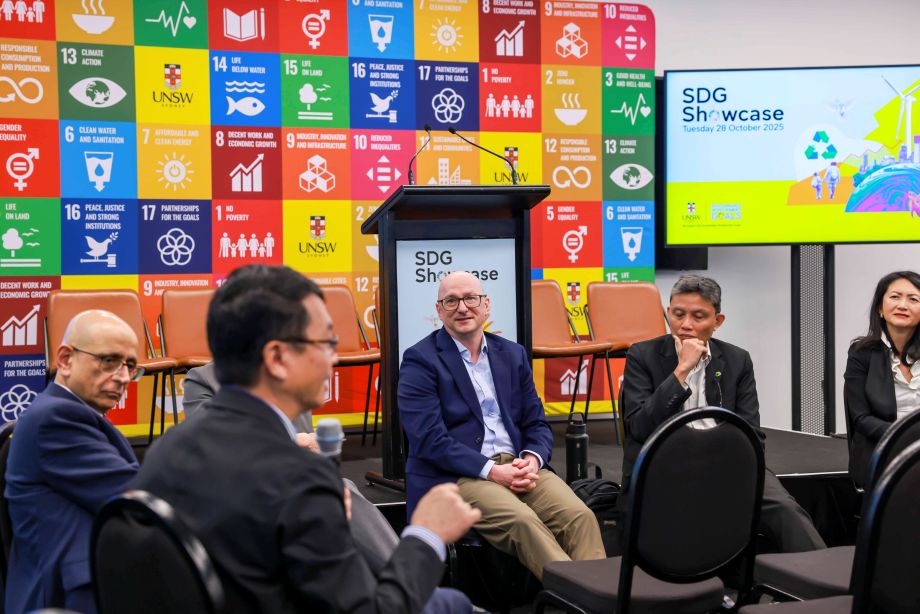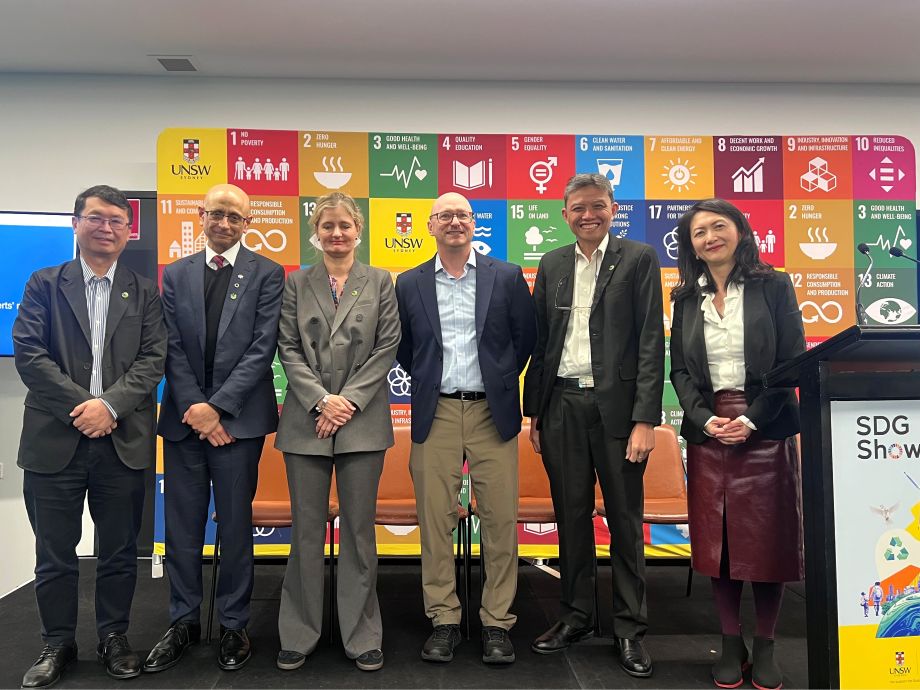
As a prelude to the USRN Executive Development Workshop 2025, a special roundtable—“USRN on the SDGs”—was held on 28 October at the UNSW SDG Showcase 2025. Chaired by Associate Professor Fengshi Wu (UNSW), the session brought together representatives from UNSW Sydney, The University of Manchester, The Hong Kong Polytechnic University, Ateneo de Manila University, and Vrije Universiteit Amsterdam to share how university research and operations are accelerating progress toward the Sustainable Development Goals.
The discussion highlighted universities’ dual role: advancing frontier research that addresses global challenges while modelling credible action through campus operations and partnerships. Speakers shared examples ranging from scalable community-built health interventions and AI-enabled urban resilience tools to science-based decarbonisation pathways and government–university collaborations for public health surveillance. A recurring theme was the importance of moving beyond isolated projects toward integrated, measurable strategies that connect research, policy, and practice.
Key themes that emerged:
- Pairing mitigation ambition with practical resilience: ensuring urgent adaptation does not delay long-term climate solutions.
- Scaling impact through partnerships: co-creating interventions with communities and governments to embed evidence into policy and services.
- Data- and technology-driven solutions: leveraging AI, digital twins, and indicators to support city-level sustainability and infrastructure resilience.
- Operational leadership: applying science-based carbon budgets and renewable energy investments to demonstrate credible net-zero pathways on campus.
- Equity and access: expanding reach through culturally adapted, lay-delivered interventions that reduce inequalities in crisis-affected settings.
The roundtable underscored USRN’s collective commitment to translate academic excellence into tangible social impact, offering practical pathways for universities to lead on the SDGs in research, education, operations, and engagement.
USRN thanks UNSW for hosting and all participating members for their contributions to a dynamic and forward-looking discussion.
